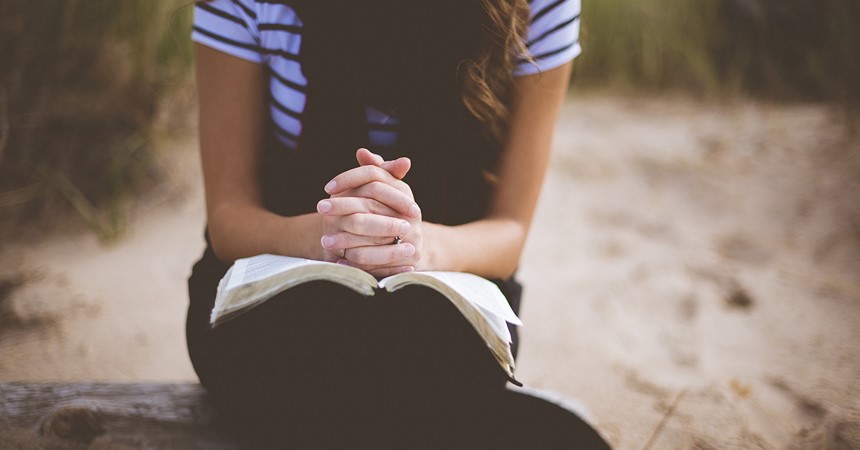Catholic Cardinals and Bishops in the US call for change
Cardinal Blase, Cupich of Chicago wrote: “Let us make it clear to our elected officials that the weapons and ammunition that facilitate this carnage have no place in our culture.”
Archbishop Charles Chaput of Philadelphia seemed to agree, writing that Americans should be “angry at our law-makers for doing so little to prevent these catastrophes.”
Cardinal Sean O’Malley, the Archbishop of Boston and one of Pope Francis’ closest aids, summed it up best when he tweeted a day after the shooting in Parkland: “Our thoughts and prayers must be joined with action, we can and must do more to prevent such attacks.”
Principles for reform
In 1994, under St. John Paul II, the Pontifical Council for Justice and Peace put out a document on the international arms trade that included this comment: “It is urgent to find an effective way to stop the flow of arms to terrorist and criminal groups. An indispensable measure would be for each state to impose a strict control on the sale of handguns and small arms. Limiting the purchase of such arms would certainly not infringe upon the rights of anyone.”
The US Conference of Catholic Bishops have held varying views for gun laws over the years.
In April 2013 – four months after the Sandy Hook tragedy – Bishop Stephen Blaire of Stockton, who was the then Chair of the Domestic Justice & Human Development Committee, wrote to members of Congress.
Among the policies Bishop Blaire cited for support were “universal background checks for all gun purchases,” restrictions on civilian purchases of “high-capacity ammunition magazines,” and an “assault weapons” ban. He also referred to Pope Francis’ call “to ‘change hatred into love, vengeance into forgiveness, war into peace’.”
In their 2000 statement “Responsibility, Rehabilitation and Restoration,” on crime and criminal justice, the US Conference of Catholic Bishops supported certain gun laws in the name of safety.
“As bishops, we support measures that control the sale and use of firearms and make them safer (especially efforts that prevent their unsupervised use by children or anyone other than the owner), and we reiterate our call for sensible regulation of handguns,” the bishops stated.
The bishops have been “clear that gun control policies are part and parcel of the common good,” Professor David Cloutier, a theology professor at the Catholic University of America in Washington said.
In fact, the bishops in the United States’ have called for gun control measures since as early as 1975, when they called for “a coherent national firearms policy responsive to the overall public interest and respectful of the rights and privileges of all Americans.”
After the Sandy Hook tragedy, the bishops of the United States renewed their call for all Americans, particularly legislators, to support:
- measures that control the sale and use of firearms
- measures that make guns safer (especially efforts that prevent their unsupervised use by children and anyone other than the owner);
- sensible regulation of handguns;
- legislative efforts that seek to protect society from the violence associated with easy access to deadly weapons including assault weapons.
A complex problem
While stricter gun laws are necessary, the bishops in the United States do emphasise that they are not sufficient to curb gun violence.
In addition to tighter gun regulations, the bishops have asked us to “make a serious commitment to confront the pervasive role of addiction and mental illness in crime,” and have also called on society to “provide health services and support to those who have mental illnesses and to their families and caregivers.”
Another concern raised by bishops is how should calls for gun control be interpreted in light of the Church’s recognition of a legitimate right to self-defence?
Paragraph 2,264 of the Catechism of the Catholic Church states: “It is legitimate to insist on respect for one's own right to life. Someone who defends his life is not guilty of murder even if he is forced to deal his aggressor a lethal blow."
“In terms of using weapons to defend yourself, there’s a presumption of civility,” Professor Cloutier said, adding “that is, there’s a presumption that in a society, you have civil relationships with other people that won’t require violence.”
And this fundamental approach Catholics must have toward society is one of “civil friendship,” he said, which is taught in the Compendium on Social Doctrine of the Church.
Gun violence in America
Earlier this week, President Donald Trump met with students, parents and teachers who have been impacted by gun violence. The group included parents of victims who lost their life in the Parkland school shooting on 14 February and parents whose 7-year-old children were gunned down at Sandy Hook Elementary School in 2012.
Speaking of the potential for reform, Trump said: “we’re going to pick out the strongest ideas, the most important ideas, the ideas that are going to work and we’re going to get them done.”
President Trump went on to say: “It’s not going to be talk, like it’s been in the past. It’s gone on too long.” He said his administration would be “very strong” with regard to background check and would put a “strong emphasis” on mental health.
Following his talk with those affected by gun violence in schools, Trump tweeted: “History shows that a school shooting lasts, on average, 3 minutes. It takes police & first responders approximately 5-8 minutes to get to site of crime. Highly trained, gun adept, teachers/coaches would solve the problem instantly, before police arrive. GREAT DETERRENT!”
So far, in 2018, there have been 2,123 deaths a result of gun violence in the United States. There have been 34 mass shootings, four of which have occurred since the 14 February shooting in Florida (source).
